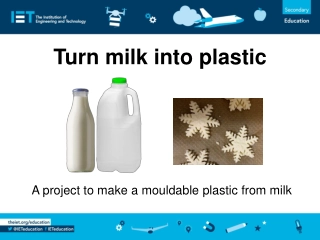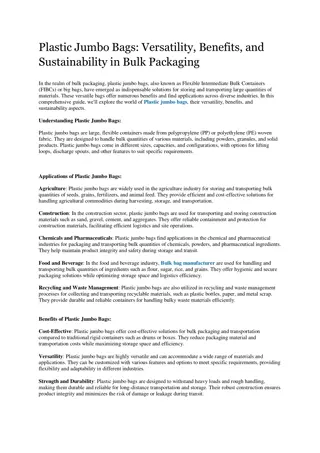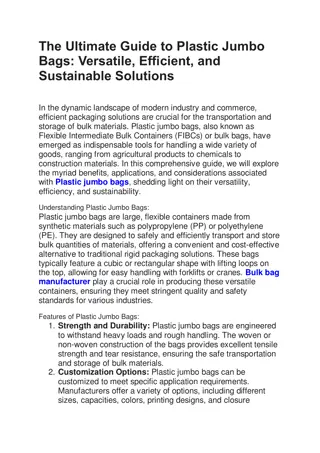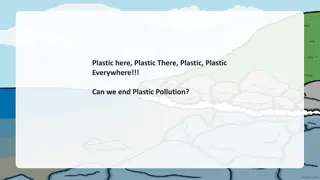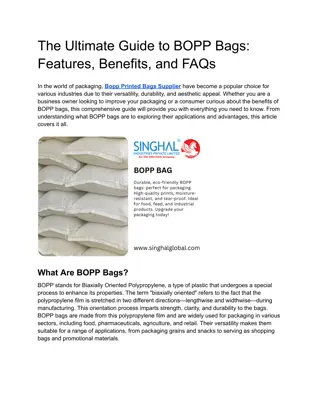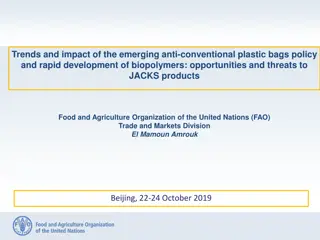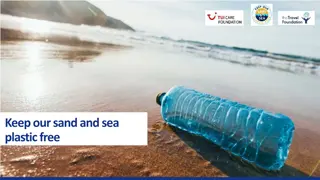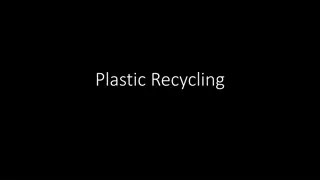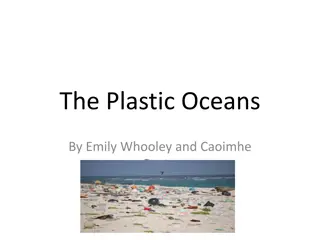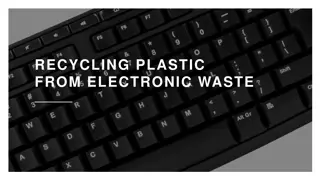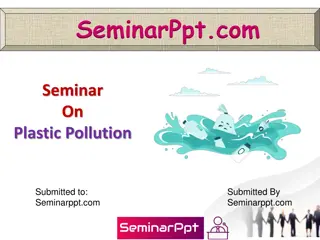Investigating the Environmental Impact of Biodegradable Plastic Bags
Plastic bags have a long decomposition time, causing harm to the environment and wildlife. By switching to biodegradable plastic bags, we aim to reduce environmental impact significantly over time. Research findings show the negative effects of non-compostable plastic bags on the marine environment and animals. Jose G. B. Derraik's article highlights the chemical composition of plastics and their long-lasting environmental consequences. A survey was conducted to gather insights on public perceptions. The project concludes with the potential benefits of adopting biodegradable plastic bags.
Download Presentation

Please find below an Image/Link to download the presentation.
The content on the website is provided AS IS for your information and personal use only. It may not be sold, licensed, or shared on other websites without obtaining consent from the author.If you encounter any issues during the download, it is possible that the publisher has removed the file from their server.
You are allowed to download the files provided on this website for personal or commercial use, subject to the condition that they are used lawfully. All files are the property of their respective owners.
The content on the website is provided AS IS for your information and personal use only. It may not be sold, licensed, or shared on other websites without obtaining consent from the author.
E N D
Presentation Transcript
Introduction The time span of using plastic bag is very long. Non- compostable plastic bags can take centuries to decompose. Plastic bags are difficult and costly to recycle and most end up on landfill sites where they take around 300 years to photodegrade. In this project we will investigate that, if retailers were to switch to biodegradable plastic bags, then the impact on the environment will be significantly reduced over time.
Lecture Review In this research we used six articles to provide us with detail evidences that plastic bags are not good for our environment, or the animals in the open ocean. These two articles are: the pollution of the marine environment by plastic debris: a review by Jose G.B. Derraik and plastic Bag Pollution by Sharon Jacobsen.
Jose G. B. Derraiks article, we learned that plastic are made with synthetic organic polymers, it s a kind of chemical that needs many centuries to decompose, and it is not even decompose completely because the small, toxic plastic becomes will be eaten by animals.


